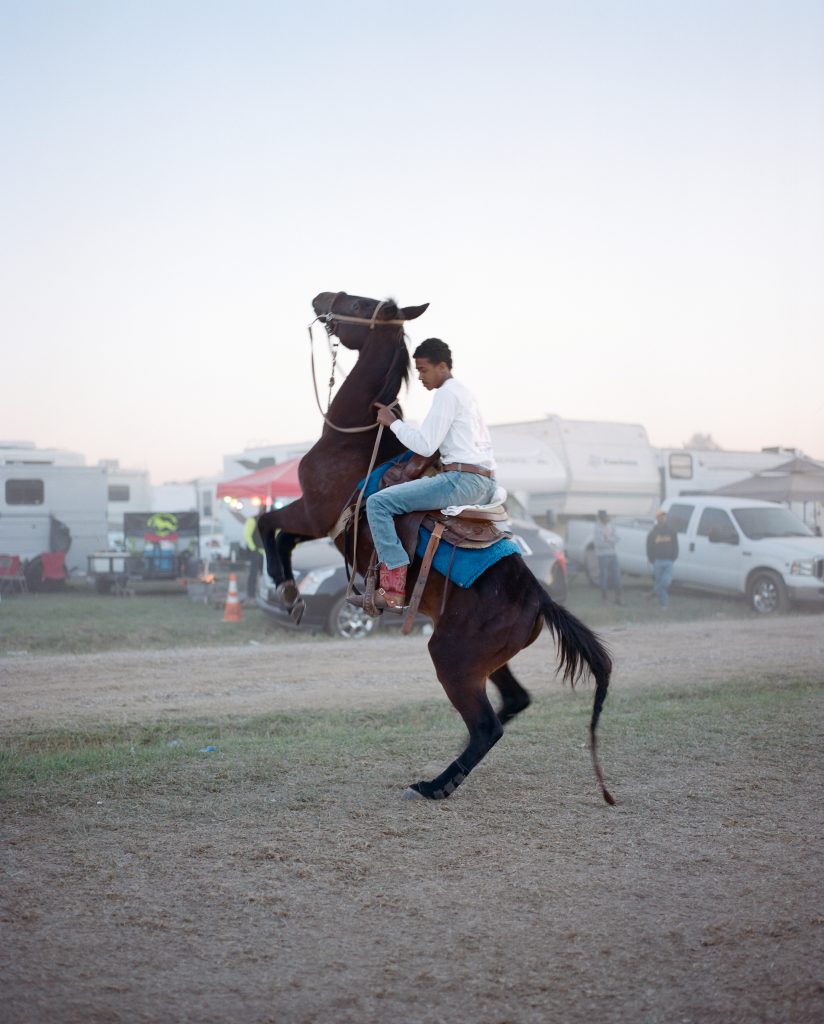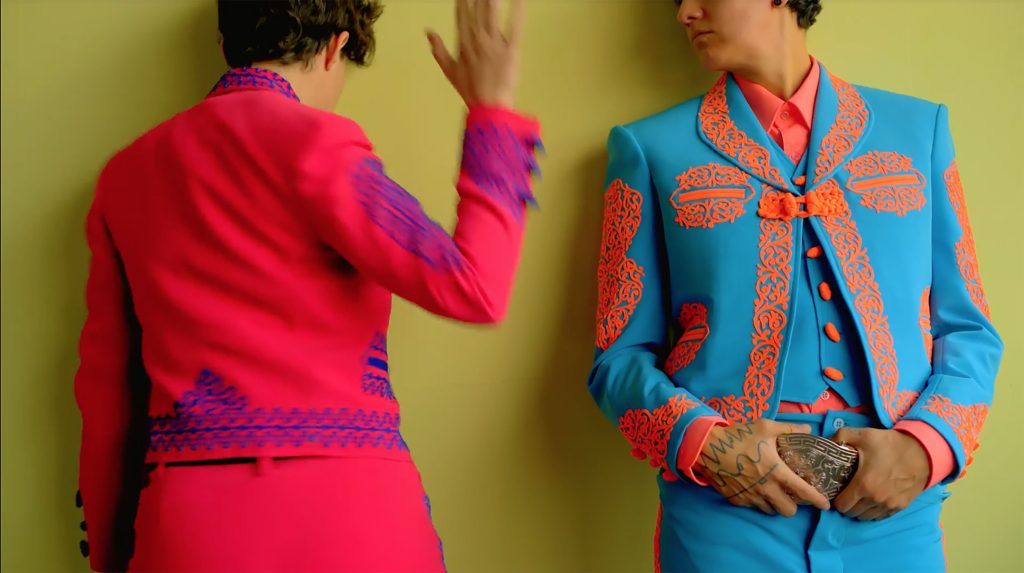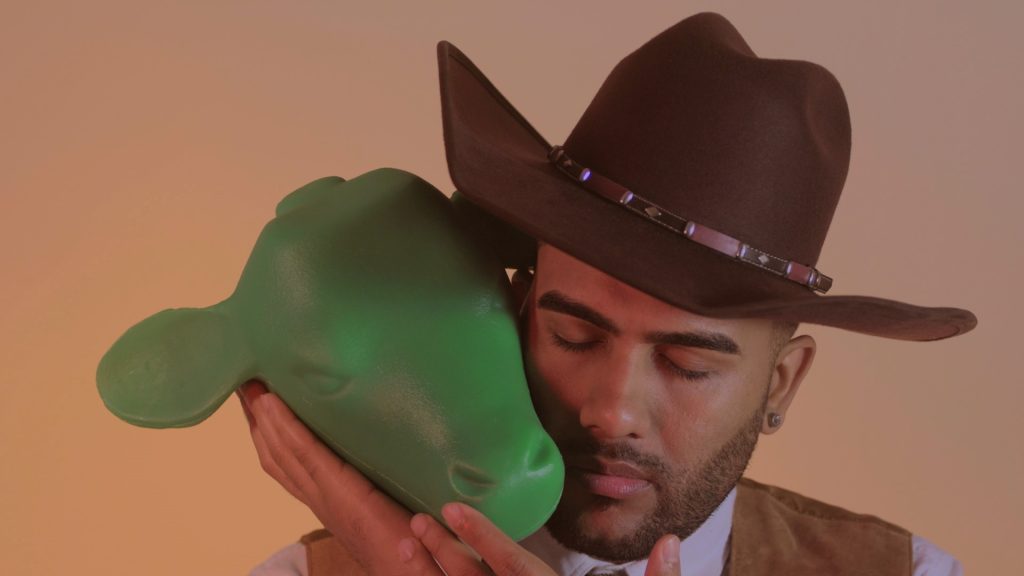Examining the Myth of the Cowboy
The Amon Carter Museum of American Art (the Carter) will present the nationally touring exhibition Cowboy in fall 2024.

Organized by the Museum of Contemporary Art (MCA) Denver, the exhibition brings together approximately 70 cutting-edge contemporary artworks, including new commissions, from more than 25 artists including Asian American, Latino, and Indigenous perspectives, all re-examining the significance of cowboy imagery in American culture. The exhibition, on view September 28, 2024, through March 16, 2025, aims to shift the narrative of this figure’s cultural power and significance to be both historically accurate and creatively imaginative.
“Cowboy reexamines a familiar figure represented in the core collection of the Carter, providing new insight into the historical and current realities of the cowboy, not just in art, but across American culture,” stated Andrew J. Walker, Executive Director. “We are honored to be the second stop on the national tour of this exhibition, which embodies the Carter’s commitment to showcasing the breadth and depth of American creativity through multiple perspectives.”

Akasha Rabut (b. 1981), Trail Rider at Sunset, 2014, archival digital print mounted to matboard, Courtesy the artist
The exhibition reexamines the legend and lore of the cowboy through a new lens, exploring how the myth of the cowboy exists today. Works on view represent a range of perspectives and explore a wide array of themes, including the cowboy’s role in shaping our perception of masculinity and gender, as well as long-held assumptions about cowboys’ relationship to land and the way these assumptions come into conflict with the lived experiences of contemporary cowboys. Cowboy aims to disrupt the homogenous ideal of the cowboy as a White, cisgender American male and showcase the diverse manifestations of this figure across communities, with works spanning a variety of media.
“If we think about who was and is responsible for cattle-related labor in the American West, it’s easy to fall into the trap, promoted by pulp fiction, dime novels, Hollywood, and many other cultural producers, that everyone looked like the Marlboro Man or a figure in a Remington painting,” stated Andrew Eschelbacher, Director of Collections and Exhibitions. “Through the work of leading modern and contemporary artists, the picture of who a cowboy was and is—Black, Asian American, LGBTQIA+, Native, a woman, or so much more—expands to be something much more reflective of historical and present-day reality. This show expands the narrative of cowboy culture for our visitors in a city that is a historic epicenter of ranching and wrangling.”

Ana Segovia (b. 1991), Aunque me espine la mano, 2018, video (5:34), Courtesy the artist
Cowboy features more than 70 artworks, including multimedia, painting, photography, and sculpture, spanning the mid-1960s to today with the majority of the work produced in the last 20 years. Included in the exhibition are five works by Stephanie Syjuco created as part of the Carter’s 2022 commissioned exhibition Stephanie Syjuco: Double Vision, in which she reconsidered the mythologies of the American West through the examination and transformation of works from the Carter’s collection. Syjuco is one of more than 25 contemporary artists represented in Cowboy including John Baldessari, R. Alan Brooks, Mel Chin, Gregg Deal, Angela Ellsworth, rafa esparza, Juan Fuentes, Karl Haendel, Luis Jiménez, Grace Kennison, Deana Lawson, Matthew J. Mahoney, Laurel Nakadate, Richard Prince, Lucy Raven, Ken Taylor Reynaga, Jaye Rhee, Ana Segovia, Amy Sherald, Kenneth Tam, Andy Warhol, and Nathan Young. The exhibition features newly commissioned work by R. Alan Brooks, Gregg Deal, rafa esparza, and Nathan Young.
Cowboy is organized by Nora Burnett Abrams, Mark G. Falcone Director, and Miranda Lash, Ellen Bruss Senior Curator, both of the Museum of Contemporary Art Denver. Accompanying the exhibition is a fully illustrated catalogue co-published by MCA Denver and Rizzoli with essays by Nora Burnett Abrams, Myeshia Babers, Jongwoo Jeremy Kim; an interview with rafa esparza by Miranda Lash; and a graphic essay by R. Alan Brooks. The catalogue is produced through the special support of the Blue Rider Group of Morgan Stanley.

Kenneth Tam (b. 1982), Silent Spikes, 2021, two-channel video (20:29), commissioned by the Queens Museum with support from the Asian Art Circle of the Guggenheim Museum, Photo by Jason Madella


 Sign in
Sign in

